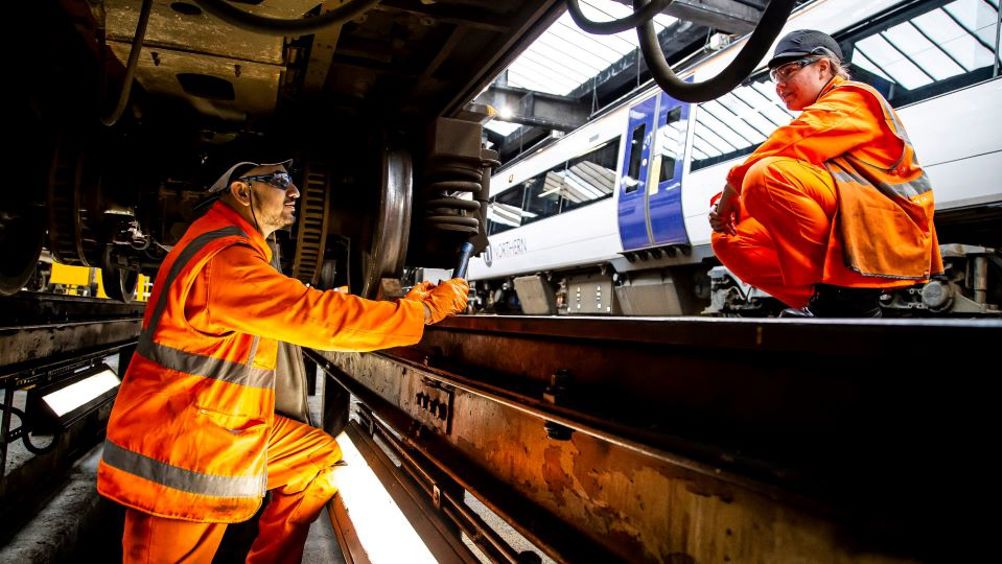Northern prepares for battle against leaves on the line
Whilst much of the UK currently basks in the summer sunshine, Northern is preparing to overcome the disruption caused every autumn by ‘leaves on the line’.

To this end, the rail operator has installed a range of technologies onto its rolling stock.
Technologies deployed by Northern include Water-Trak technology, Wheel Slide Prevention (WSP), and Double Variable Rate Sanders (DVRS).
Water-Trak technology, equipment that sprays water onto the track to simulate heavy rain conditions to help wheels from slipping, has been fitted to all 16 of the Class 170 trains in the Northern fleet
WSP, a technology that prevents wheels from ‘locking’ while the train is moving - a scenario that creates flat spots on a round wheel as carriages slide along the track - has been installed on all Class 150 and Class 156 trains in service.
DVRS, which deploys up to three times the quantity of sand at a higher speed than previous versions, has been fitted to all 34 of Northern’s Class 323 trains.
With these units deployed across the network, Northern said it is confident that disruption caused by leaf-fall will be kept to a minimum.
Register now to continue reading
Thanks for visiting The Engineer. You’ve now reached your monthly limit of news stories. Register for free to unlock unlimited access to all of our news coverage, as well as premium content including opinion, in-depth features and special reports.
Benefits of registering
-
In-depth insights and coverage of key emerging trends
-
Unrestricted access to special reports throughout the year
-
Daily technology news delivered straight to your inbox










Water Sector Talent Exodus Could Cripple The Sector
Maybe if things are essential for the running of a country and we want to pay a fair price we should be running these utilities on a not for profit...